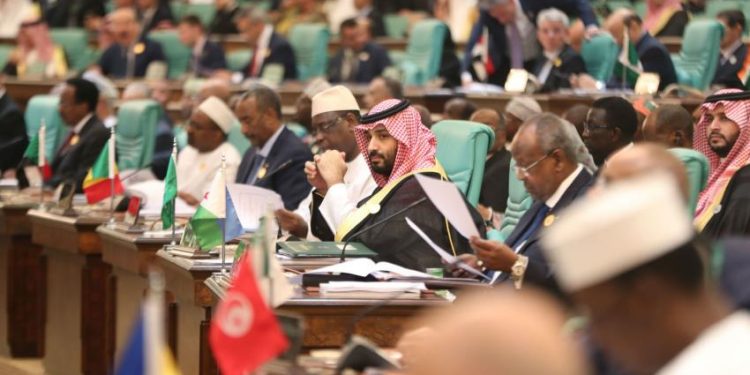Jeddah: The Organisation of Islamic Cooperation Monday rejected US President Donald Trump’s peace plan for the Middle East, calling on its 57 member states not to help implement it.
The pan-Islamic body, which represents more than 1.5 billion Muslims worldwide, “rejects this US-Israeli plan as it does not meet the minimum aspirations and legitimate rights of the Palestinian people and contradicts the terms of reference of the peace process”, it said in a statement.
A meeting of foreign ministers at OIC headquarters in the Saudi city of Jeddah called on “all member states not (to) deal with this plan or cooperate with the US administration efforts to enforce it in any way or form”.
Under the US plan unveiled last week, Israel would retain control of the disputed city of Jerusalem as its “undivided capital” and annex settlements on Palestinian lands.
Trump said Palestinians would be allowed to declare a capital within annexed east Jerusalem.
The OIC reiterated its support for east Jerusalem as capital of a future Palestinian state, stressing its “Arab and Islamic character”.
It said peace would “only be achieved with the end of the Israeli occupation, the full withdrawal from the territory of the State of Palestine in particular the holy city of Al-Quds Al-Sharif (Jerusalem) and the other Arab territories occupied since (the) June 1967 (Middle East war)”.
The Arab League on Saturday also rejected the controversial plan, saying at a meeting in Cairo that it did not meet the “minimum rights” of the Palestinians.
They insisted on a two-state solution that includes a Palestinian state based on borders before the 1967 war — when Israel occupied the West Bank and Gaza — and with east Jerusalem as its capital.
Palestinian leader Mahmud Abbas announced in Cairo that he will cut all ties with Israel and the US. “We are informing you that there will be no relations with you (Israel) and the United States, including on security cooperation,” he said.
The Trump plan also gives Israel the green light to annex the strategic Jordan Valley — making up 30 per cent of the West Bank — and all Jewish settlements, which number more than 200.
AFP






































